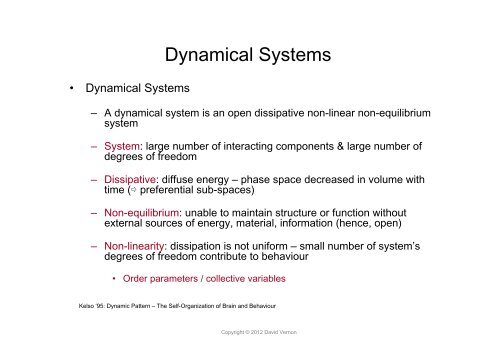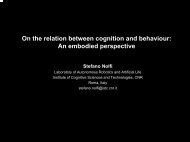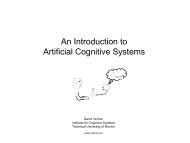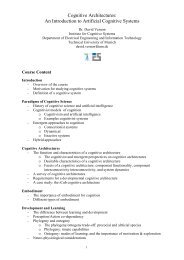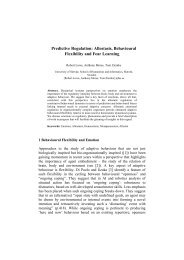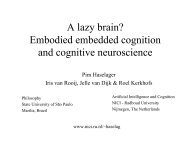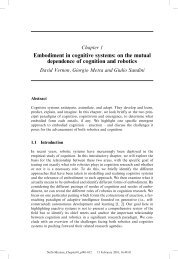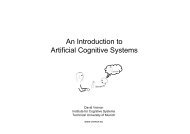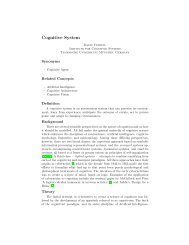Lecture 2: Paradigms of Cognitive Science - David Vernon
Lecture 2: Paradigms of Cognitive Science - David Vernon
Lecture 2: Paradigms of Cognitive Science - David Vernon
Create successful ePaper yourself
Turn your PDF publications into a flip-book with our unique Google optimized e-Paper software.
• Dynamical Systems<br />
Dynamical Systems<br />
– A dynamical system is an open dissipative non-linear non-equilibrium<br />
system<br />
– System: large number <strong>of</strong> interacting components & large number <strong>of</strong><br />
degrees <strong>of</strong> freedom<br />
– Dissipative: diffuse energy – phase space decreased in volume with<br />
time (⇨ preferential sub-spaces)<br />
– Non-equilibrium: unable to maintain structure or function without<br />
external sources <strong>of</strong> energy, material, information (hence, open)<br />
– Non-linearity: dissipation is not uniform – small number <strong>of</strong> system’s<br />
degrees <strong>of</strong> freedom contribute to behaviour<br />
• Order parameters / collective variables<br />
Kelso ‘95: Dynamic Pattern – The Self-Organization <strong>of</strong> Brain and Behaviour<br />
Copyright © 2012 <strong>David</strong> <strong>Vernon</strong>


